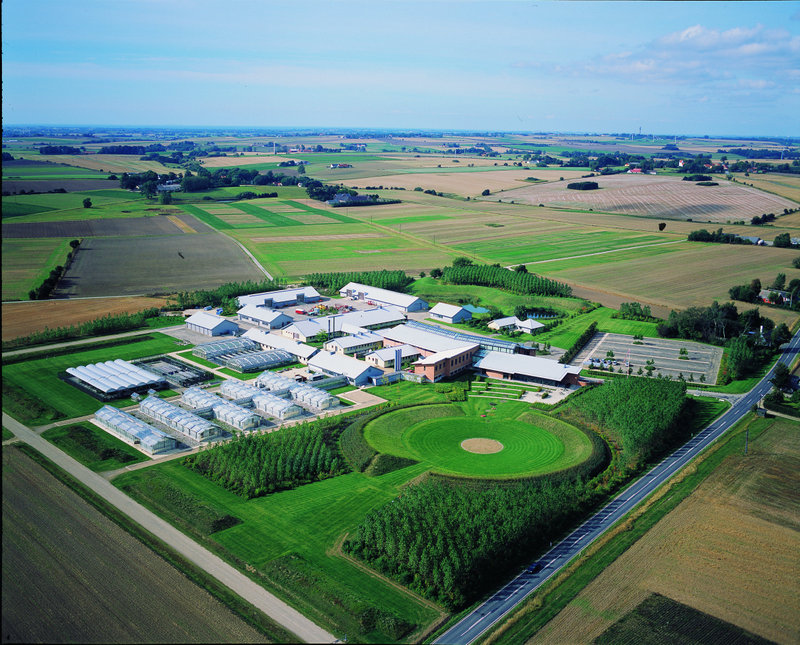Research activities at Aarhus University’s Flakkebjerg site to continue
The faculty management team at Aarhus University have decided that the research facilities and activities at AU Flakkebjerg are not to be moved.

The activities of Research Centre AU Flakkebjerg (part of Aarhus University) are to remain in Flakkebjerg. This is based on the conclusion that keeping the activities at Flakkebjerg offers the best scope for development of the research disciplines.
- AU Flakkebjerg is a well-functioning research facility where current research activities are mutually supportive and developing very favourably in terms of collaboration with industry. We believe that these are good prerequisites for continuing the development of the research activities at AU Flakkebjerg that cover areas of considerable international expertise for the benefit of both the industry and private companies, says the Dean of the Faculty Science and Technology, Niels Chr. Nielsen.
Research capacity to be exploited
Discussions were previously centred on whether the research activities should be moved to either Aarhus or Foulum to get closer to Aarhus University. This idea has now been shelved. Instead, the cooperation between the research environments at AU Flakkebjerg and AU Foulum and Campus Aarhus will continue to be strengthened. In addition, the capacity at AU Flakkebjerg is to be fully exploited through growth and alliances with, among others, commercial enterprises and regional authorities.
- AU Flakkebjerg has in recent years been making good progress based on its expertise, with healthy increases in externally funded projects in collaboration with industry. We would like to continue this development, says Head of the Department of Agroecology, Erik Steen Kristensen.
The plan is to invest heavily in research facilities in the coming years, which is essential in order to further develop the internationally recognised research environments. The goal is for AU Flakkebjerg to continue to be a centre of strong international research excellence which will continue to deliver the best research-based policy support and collaboration with commercial enterprises.
Staff overjoyed
AU Flakkebjerg comprises two departments: the Department of Agroecology and the Department of Molecular Biology and Genetics. A total of about 150 scientific, technical and administrative staff are employed at the research centre. Scientists at AU Flakkebjerg work mainly with the production and protection of crops, the genetic breeding of plants and seeds and environmental technology.
The decision to retain the activities at AU Flakkebjerg caused much delight among staff, who broke into spontaneous applause as they heard the news. The decision means that jobs are preserved for the benefit of both the employees and the local community.
- It means a lot locally, and is great and good news here in western Zealand, says Professor Mogens Støvring Hovmøller from the Department of Agrobiology, and continues:
- Nearly everywhere we have gone in the local community in recent years we have been asked when we would be closing. This message has really taken hold. Now we can breathe a sigh of relief and instead look to invest and to the future. We can keep all our activities here and make financial investments in the centre and, not least, the employees.
His delight is mirrored by the Head of the Department of Molecular Biology and Genetics, Erik Østergaard Jensen:
- After a long period of uncertainty, it is good for the employees to get clarification, and the solution to keep Flakkebjerg ensures that we can maintain and expand our strong expertise in crop research, he says.
Associate Professor Henrik Brinch Pedersen, also from the Department of Molecular Biology and Genetics, agrees.
- It’s the right decision and a great relief, and seen from the outside there was the considerable risk that we would lose skills and opportunities. The statements and the feedback we have received from our partners support the view that it was a good decision, says the professor who has already received several congratulatory messages from his research associates.
Read more about AU Flakkebjerg here.
For further information please contact:
Head of Department of Agroecology, Jørgen Eivind Olesen, email: jeo@agro.au.dk, mobile: +45 4082 1659
Head of Department of Molecular Biology and Genetics, Erik Østergaard Jensen, email: eoj@mbg.au.dk, telephone: +45 8715 5505, mobile: +45 2899 2567
